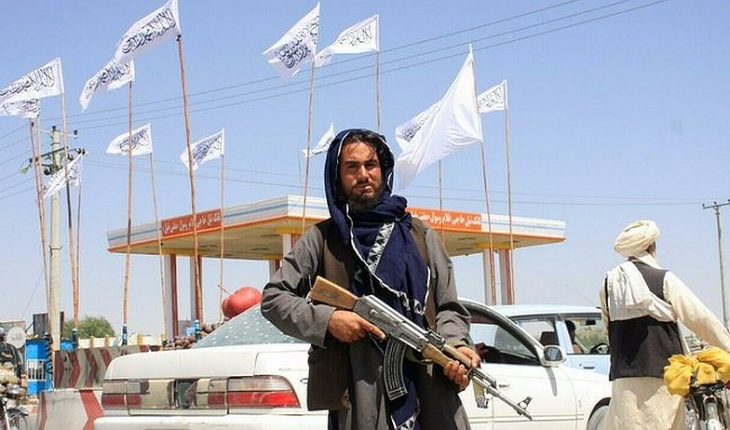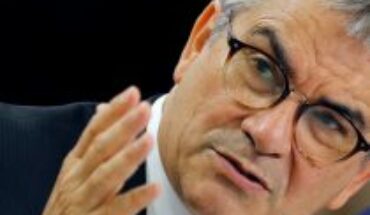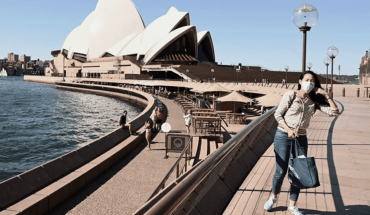The relatively unknown Mullah Hassan Akhund will be the new head of Afghanistan’s interim government, a leader who is blacklisted by the United Nations, the Taliban revealed on Tuesday along with a score of key ministries. It is a government in which for now there are no women and whose members all belong to the Islamist formation, although today they promised that “this Cabinet will be more inclusive” with future appointments. Mullah Hibatullah Akhundzada, considered the new spiritual supreme head of Afghanistan, said after the announcement that the government of the Islamic Emirate, as the Taliban call themselves, will work to maintain Islamic law but will protect human rights within the framework of Islam. HASSAN AKHUNDThe Mullah Hassan Akhund will be the new head of the interim government of the Asian country, revealed today at a press conference in Kabul the main spokesman of the Taliban, Zabihullah Mujahid.Akhund, less publicly known than other Taliban leaders who have been appointed to the head of important ministries, is one of the founding members and is part of the board of directors of the fundamentalist formation for two decades, A source from the insurgent culture commission told Efe, requesting anonymity. He is originally from the southern province of Kandahar, which he initially led as governor during the Taliban regime between 1996 and 2001, the source said. The mullah later served as deputy director of the Council of Ministers and then as deputy foreign minister and, like other Taliban leaders, remains on the United Nations blacklist.” He is an intelligent and experienced leader,” the source said. The Taliban’s main spokesman on Tuesday advanced a score of names that will be part of the interim government, after the insurgents captured Kabul on August 15 at the end of a rapid offensive during the final withdrawal of US and NATO troops. The interim executive will have two deputy heads of the Cabinet of ministers, the first of them Mullah Abdul Ghani Baradar.This Taliban leader, 53, is the co-founder of the Taliban militia and was considered for years as the right-hand man of Mullah Omar, the founding leader of the insurgent movement. Baradar played an important role in negotiations with the United States in Qatar, which culminated in the historic agreement in February 2020 that set a date for the final withdrawal of foreign troops. The new Afghan interior minister will be Sirajuddin Haqqani, 48, the head of one of the most feared insurgent groups in Afghanistan: the Haqqani network, founded by his father, Jalaluddin Haqqani, to fight the Soviet invasion in the 1980s. he becomes the acting defense minister. The spokesman clarified that this is an “interim government”, although the Taliban have given few clues about the future political process in Afghanistan.ISLAMIC EMIRATEMah Hibatullah Akhundzada, who is considered, although not yet officially, the new supreme spiritual head of Afghanistan, said in a statement that the mission of the interim government will be “to work hard to defend Islamic rules and Sharia (Islamic law) in the country.” Akhundzada also vowed that the government “will take decisive and effective steps to protect human rights and minority rights” within the framework of Islam. Similarly under sharia, under whose strict interpretation the Taliban forbade women from working or going to school, the government will provide a “healthy and safe environment for religious and modern sciences for all compatriots.” The Taliban’s announcement comes on the same day that hundreds of Afghans, many of them women, demonstrated in various locations in Afghanistan to show their support for the resistance against the insurgents and to criticize Pakistan’s alleged military aid to the Islamist formation. In Kabul, hundreds of women and men took to the streets with flags and banners to demand “freedom” and show their support for the National Resistance Front (NRF) in the northern province of Panjshir, a day after the Taliban announced the conquest of the latter opposition stronghold in the country. The protests resulted in arrests of demonstrators and journalists and allegations of attacks by insurgents. The Taliban spokesman, after announcing the members of the government, said that “now is not the time to demonstrate.” Protests that are currently being held are illegal (…) and we ask the media not to cover the illegal demonstrations. Today’s protesters are rioters,” he concluded.
translated from Spanish: Taliban appoint interim government for Afghanistan
September 7, 2021 |





